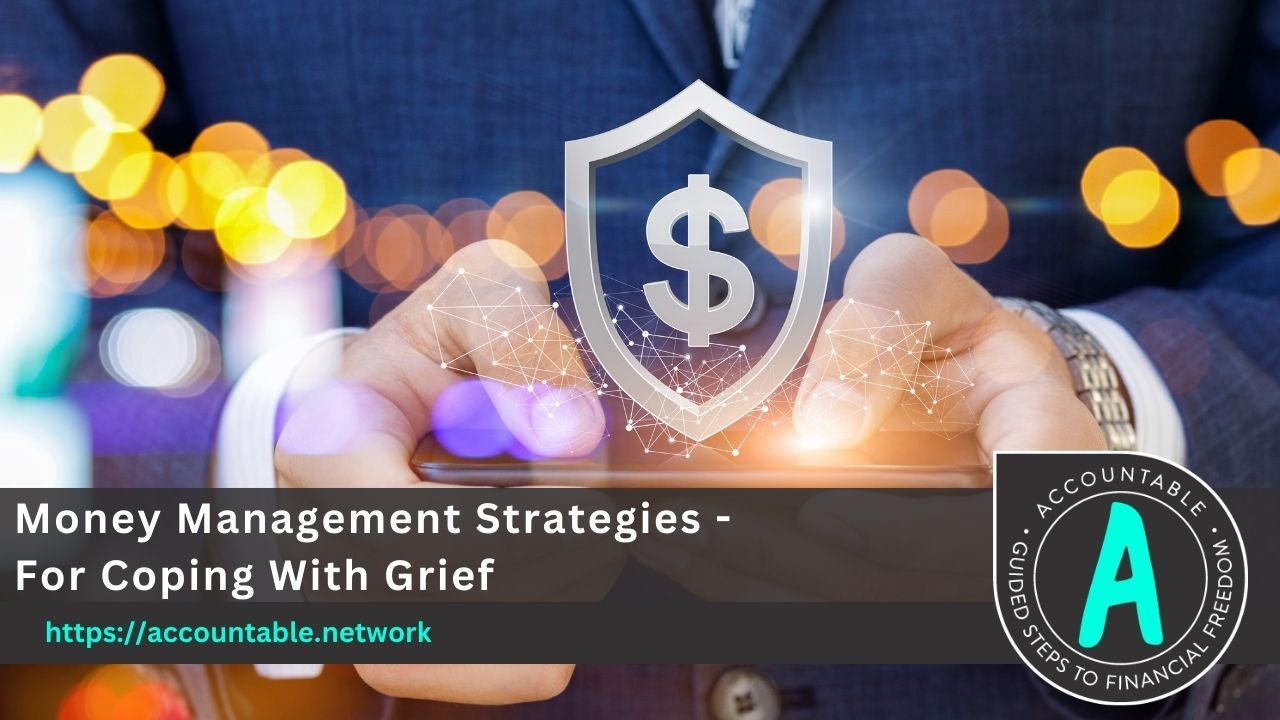Maximizing Business Tax Benefits: Why The Right Accountant Matters

It’s important to take a step back and think about who you’re trusting with your business finances. Sure, you might just be focused on getting your taxes filed on time and at a reasonable cost, but there’s so much more to it than that.
For example, Nick was a man with a lot on his plate. He was a member of the sandwich generation, taking care of both his small children and his aging parents. On top of all that, he was self-employed and had to file his tax return amidst all the chaos of his life.
Nick wasn’t sure how to pick the best accountant to manage his particular situation. He found someone that seemed reasonable and hired him on the spot, without much thought. At first, things seemed to be going fine. But as time went on, Nick began to realize that he had made a mistake.
The accountant never bothered to ask him any questions about his future plans. Nick had mentioned that he was planning to start another division, but the accountant didn’t seem to care. As a result, Nick mi...
CPA vs. EA: Exploring the Key Variances in These Top Financial Experts

When it comes to overseeing your taxes, it’s important to know who you’re working with. There are two types of professionals who specialize in tax preparation: Enrolled Agents (EAs) and Certified Public Accountants (CPAs). While both EAs and CPAs can prepare tax returns and provide tax advice, there are some key differences between the two.
First, let’s talk about EAs. EAs are licensed by the IRS to represent taxpayers before the IRS, which means they can assist with audits, appeals, and collections as well as prepare tax returns. They have passed a comprehensive three-part exam on tax law and must complete ongoing education requirements to maintain their license. While EAs can provide tax advice and prepare tax returns, not all are specifically trained in every area of accounting.
On the other hand, CPAs are licensed by state boards of accountancy and that licensing allows them to perform a wide range of accounting services beyond tax preparation, such as auditing, bookkeeping, a...
Best Ways to Track Your Expenses (Why You Must Take Charge Now)

Did you know that neglecting to track your expenses is similar to leaving the doors of your home wide open, allowing anyone to come and go as they please? It's an open invitation to financial challenges and uncertainty.
Understanding where your money goes is essential for making sound decisions about budgeting, saving, and planning for the future. If you're like most people, you might not have a precise monthly spending figure. Failure to track your expenses can lead to feelings of financial strain, stress, and anxiety, pushing you to live paycheck to paycheck. These financial pressures can hinder your ability to concentrate on your job and family, causing constant worry about meeting basic needs like groceries, medicine, and clothing. As bills arrive daily, you could find yourself trapped in a cycle of living paycheck to paycheck, with debt looming large and unending financial stress. This situation can erode your self-confidence and impact your relationships, exhausting your ment...
What are Achievable New Strategies and Benefits for a Positive Net Worth

Net worth, a term often mentioned in financial circles, wields a significant influence on your life, more so than one might initially comprehend. It serves as a financial health barometer, much like the vital metrics assessed during a medical checkup, including blood pressure, blood sugar, weight, and body temperature. In the realm of personal finance, net worth encompasses critical indicators represented by your assets (what you own) and liabilities (what you owe). Just as a medical checkup detects your health status, understanding your net worth is paramount for assessing your financial well-being. The insights derived from knowing your net worth empower you to make informed and strategic financial decisions, paving the path to a more secure financial future.
What is Net Worth?
Ever wondered how to gauge your financial standing in a straightforward way? Well, that's where 'net worth' comes into play. Think of it as a practical report card for your money. This simple concept is m...
7 Effective Ways To Talk To Kids About Money - A Lighthearted Guide

Money is a fundamental part of life, and understanding its value is crucial. As parents, we have the privilege and responsibility of teaching our children about money, ensuring they are equipped to make informed financial decisions. However, this doesn't have to be a daunting task filled with lectures and "don't do that" moments. In this blog, we'll explore a more enjoyable and productive approach to teaching your kids about money.
Let’s start by 'Setting the Stage' for a great conversation
- Keep it Light: Discussing money with your kids doesn't have to be a dry lecture. Approach the topic with a light-hearted, positive attitude. The goal is to create an environment where your child feels comfortable discussing money and is open to learning.
- Reduce Distractions: Modern life is filled with distractions, from smartphones to TV. When you're talking about money with your child, eliminate these diversions. Have a genuine, focused conversation with eye contact and undivided attention. ...
Why Solopreneurs Need An Emergency Transition Plan And How To Create One

Let’s face it – emergencies happen. Even in business. If you need to step back from your business for a season or an extended period, you will need help managing things. Who will step in when you’re away? And how will they know what to do?
As a solopreneur, you are the chief everything officer. You are the boss, chief financial officer, administrative assistant, human relations rep, salesperson, marketing director, and janitor. But as a solopreneur, it’s also your responsibility to future-proof your business. This includes preparing for emergencies and having a system in place that’ll help your business function or close shop if something happens to you.
You know your business inside out. So, you don’t need a how-to sheet to get stuff done. But your proxy will need a how-to reference sheet. And the best way to build one out for them is by creating an emergency transition plan.
This plan is not about getting proper insurance or securing confidential client information. While those...
How To Cut Expenses In The Most Expensive Areas Of Your Budget?

When it comes to budgeting, it’s easier to focus on cutting small expenses here and there to save money. Canceling a subscription to a streaming service you no longer use or cutting down on your Starbucks pitstops are all simple steps you can take to reduce expenses. But let’s be real – your most significant savings will come if you cut costs in the most expensive areas of your budget. This can help you significantly impact your financial picture without sacrificing too much. In this article, we’ll discuss which areas of your budget you can cut down on to create the greatest impact and provide tips and strategies on how to do it.
According to the Bureau of Labor Statistics, the top three areas that Americans spend the most in are housing, transportation and food.
Housing accounts for 33% of total expenses, followed by transportation at 16% and food at 12%.
Additionally, tax expenses are another key area where we can save more if we plan wisely. I like to call this strategy Cutting...
Money Management Strategies For Coping With Grief

Most of us will experience grief during our lifetime. Losing someone or something you love can be a devastating experience and can leave a permanent mark on our lives. Often, there is also a financial aspect to our grief. The fusion of money and suffering creates strong emotions that affect our mental health and our relationship with money. This emotional turbulence can be overwhelming and difficult to manage, especially when you’re feeling lonely and stressed.
Let’s explore the challenges of financial grief and some practical steps for coping after a loss.

Struggling with Limiting Beliefs
Limiting financial beliefs or money habits may rise to the surface during times of grief. For example, you may believe that "good karma" will take care of your finances. Or you may question why you, a good person, should have to experience financial struggles.
These are some limiting beliefs you may struggle with during these times:
- “Money is unimportant" - When I was going through a peri ...
5 Healthy Emotional Benefits of Creating A Spending Plan
The harsh reality is that most of us weren't lucky enough to be blessed with parents who talked openly about finances in the home and ensured that we were equipped with the foundational education needed to know how money works and build wealth. The reasons may vary, and this oversight, in most cases, occurs because they never had this conversation with their families growing up. While we may brush this off as adults, the discussion around the money mindset is more significant than we realize; it has layers of emotions surrounding it. And as adults, we have to dig deeper!
As a certified financial planner who has experienced this misfortune and the lack of education on money matters, I am writing this post to share this emotional journey and connect with you regarding your challenges in maintaining and managing your finances. Maybe you were like me, grew up dirt poor, or experienced financial challenges mixed with loads of debt in your marriage (yes, we've been there too). I'm here t...
Thinking about buying a car? Read this.

Did you know that there are a number of different benefits to saving for a car – both financial and non-financial?
If you really work towards it, saving up for your dream vehicle can help improve your mental and emotional health and your relationships with your loved ones.
If you’re desiring instant gratification from that new or new-to-you car sitting in your driveway, it may not seem worth it to save up for it.
But…when you recognize how incredibly rewarding it would be to have that car sitting in your driveway with NO payments (or a very low payment if you choose to finance it with a larger down payment), you may think again before hitting the car lot just yet!
Non-Financial Benefits of Saving Up for a Car
Picture this: You head into the car lot, knowing exactly which vehicle you’re looking for. You know how much that vehicle is worth, and you’re clear on what you’re willing to spend to get that vehicle. Most importantly, you’ve already saved the money, and you’re 100% ...
